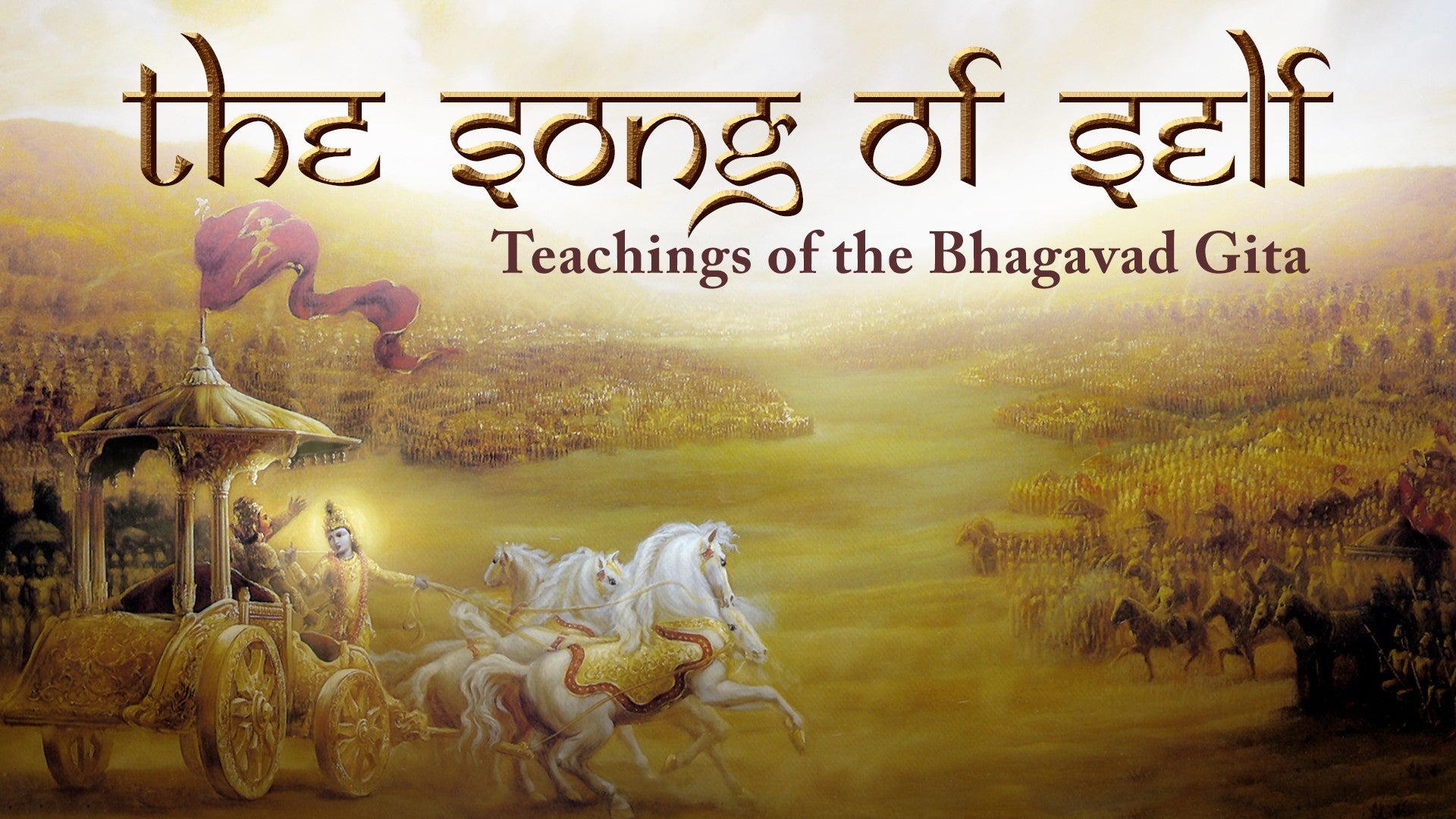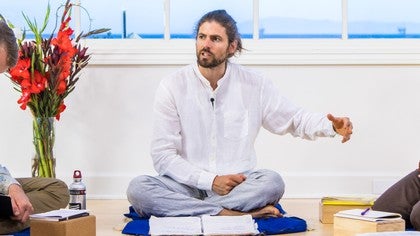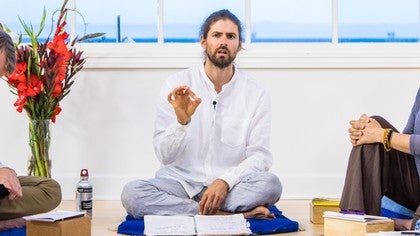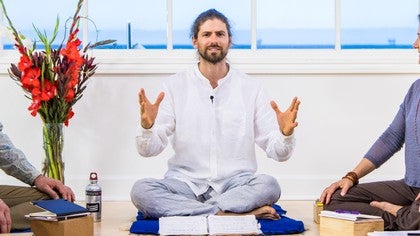Description
About This Video
Transcript
Read Full Transcript
So, in the previous verse, 64, Krishna has introduced this idea of prasada, this state of deep serenity, and in the 65th, he describes the power of this state, what it can set in motion. So Krishna says, prasada, in that state of prasada, in that state of serenity, of tranquility, something happens, there is the hanihi, which means the disappearance, the fleeting away, the dissolution, this is brought about of salavadukkanam, of all troubles, of all sufferings, of all dis-ease. So the idea, when we're in that state of serenity, that causes to arise a feeling of the dissolution of our dis-ease. In serenity, disease disappears, stated more simply, but the way it's stated in the Sanskrit is kind of interesting, in serenity, there is the rising up, it occurs that there is the dissolution of our diseases. So it's the idea that this prasada, this sweet, tranquil, serene state, has a dissolving power, has a harmonizing power, it's not just that we feel nice and then, oh, we cycle back into feeling diseased, it's the idea that there is a healing potency that we can actually experience when we cultivate that prasada, that integration, that serenity.
And Krishna says, prasanna cheta saha, in that type of state, then our chetas, our consciousness, prasanna, it can become clear, bright, very readily, ashuha means quickly, and then buddhi, parlyavadishtati, then our discerning awareness, quickly, readily, becomes firmly established. So the idea that when we cultivate that easefulness, when we cultivate that integration, it has a power of its own. So Krishna has explained that he's going to tell us how to come out of karamabhandana, out of the binding influence of action. So the idea is that everything we experience, it leaves an impression, and when we experience pleasing things, generally, it makes us want more of them. When we experience displeasing things, generally, we are influenced to tend to want to avoid such things in the future.
But there's the idea that when we experience samadhi, integrated awareness, when we experience this prasada, this state of deep tranquility, that is the natural consequence of turning our sense experience back to its source, and really tuning into the animating underlying essence of consciousness, then this leaves a particular type of residual impression. It leaves its own mark, which is actually very deep. Because when we experience that deep serenity, it's like the whole system bathes in it. The idea we might have a transient experience that's pleasing or displeasing, but it's actually only pleasing to certain quarters or certain parts of ourselves, and other parts aren't really touched or moved by it. But there's the idea that when we experience samadhi, true integration, every part of the system rejoices in that, and so it has this wonderfully healing effect, has this wonderfully dissolving, clarifying effect.
And this is the basis of the mechanics of meditation practice in yoga, is the idea that as we habituate ourselves to be steadily present, fully occupying the here and now, unperturbed by the weight of the past, or the anxiety about the future, we learn how rich and full it feels to allow ourselves to be here now. And the relish of that sets in motion a new tendency, and we want to stay present, and we're less prone to get carried away into expectations, into hankering after the fruits, or being burdened by past experiences. So you can come out of the idea, you can come out of the bondage of desire, action, impression, by making your actions such that they lead you to that place of deep serenity, of fullness. You feel that, yes, this was my true, authentic action, and the fullness that invites, it is own reward, and in that sweetness, in that serenity, then naturally, dis-ease falls away.
The Song of Self: Bhagavad Gita: Chapter 2
Comments

You need to be a subscriber to post a comment.
Please Log In or Create an Account to start your free trial.








